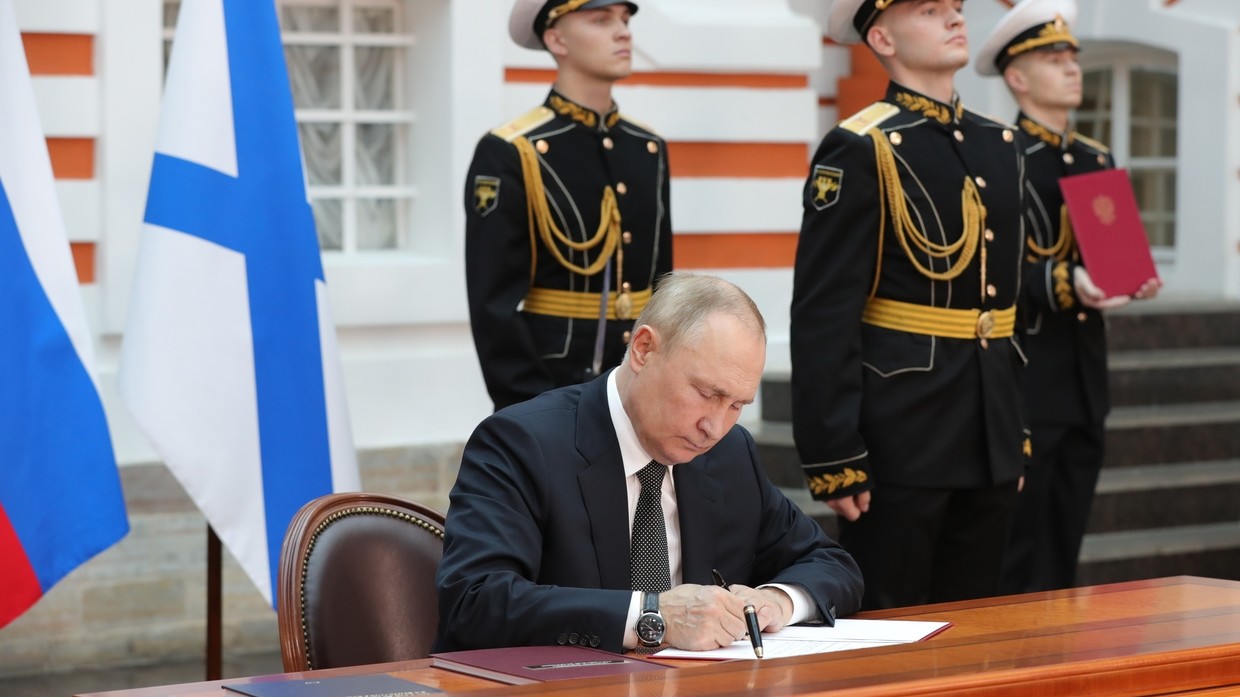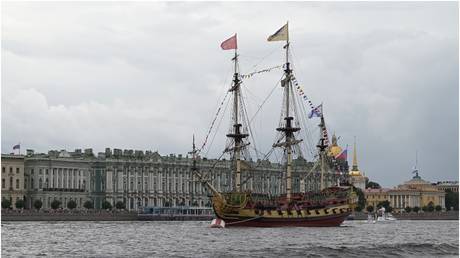Russian President Vladimir Putin on Sunday gave his approval to a revised naval doctrine that takes into account the “change in the geopolitical and military-strategic situation in the world.”
The signing ceremony took place in the State Museum of the History of St. Petersburg in the Peter and Paul Fortress, just before the start of the Navy Day parade. The president also signed a decree to approve the ship charter of the Russian Navy.
The revised doctrine outlines the main “challenges and threats” Russia is facing in the naval sphere, namely “the strategic course of the US to dominate in the world oceans” and the encroachment of “NATO military infrastructure” toward the country’s borders. Other challenges include “attempts by certain nations” to change the existing legal rules regulating sea routes and straits, as well as the spread of terrorism, piracy and trafficking of highly illegal goods in the high seas.
The document outlines the “risks” facing Russia’s naval activities, such as “lacking” the participation of the country’s merchant fleet in global cargo flow, the dependency of trade on freight vessels and undersea pipelines, foreign sanctions and “suddenly emerging and hard to predict” pandemics of dangerous diseases. Also included among the risks is the lack of overseas naval re-supply points and bases. However, the doctrine envisions the creation of such a facility in the Red Sea.
The ultimate goal of Russia is to further develop in its role as a great naval power and reinforce its position among other such nations, according to the doctrine. The document outlines expanding both the merchant fleet and navy, and envisions, among other things, the construction of aircraft carriers.
Back in May, Yury Borisov, then-deputy prime minister, explained that amid the ongoing military operation in Ukraine and “all-out hybrid war” launched by the West against Moscow, “building up capabilities to ensure and protect national interests in the world oceans” is vital for Russia.
“The adjusted Naval Doctrine takes into account the change in the geopolitical and military-strategic situation in the world,” the official said back then.
At the same time, Borisov, who was recently appointed as head of the Russian space agency, Roscosmos, stressed that the new version of the doctrine is not aimed at confrontation but rather seeks to strengthen national maritime security and significantly reduce the Navy's dependence on external factors and market conditions.
Russia's naval doctrine was first adopted in 2001. Its previous version, which had been amended to reflect the expansion of NATO and accession of Crimea to Russia, was approved by Putin in July 2015. It provided for an increase in the Russian fleet’s presence in the Arctic, the Black and Mediterranean Seas, as well as in the Atlantic Ocean.


